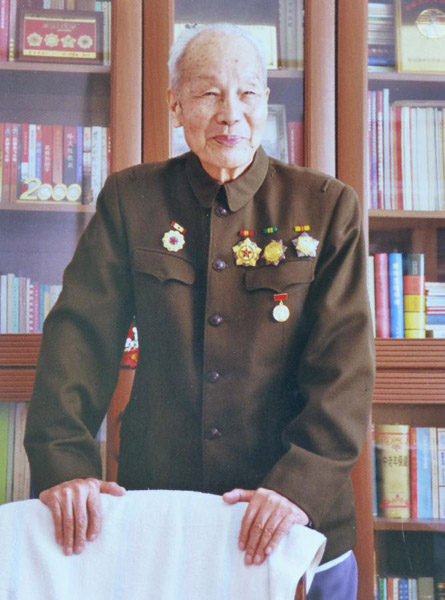


 |
|
Tu Tongjin poses for a photo wearing badges in 1988.[Photo/Xinhua] |
In September, 1951, two years after the founding of the People's Republic of China, Tu was sent to the Soviet Union to study neurosurgery under a government-sponsored program.
The challenge to explore a new field in a foreign county was immense, especially as he was nearing 40s.
The Long March survivor withstood the second test of his life.
The start was pretty good. When introduced to other staff of the Burdenko Neurosurgery Institute in Moscow, he was given a long standing ovation for his successful completion of the Long March.
Despite the good beginning, he had to overcome cultural differences, language barriers, and academic challenges. But in five years, he completed the studies and got the doctorate degree. In the spring of 1956, he came back to China and began teaching neurosurgery at the Fourth Military Medical University in Xi'an of Northwest China's Shaanxi province.
In 20 years after returning to China, he not established the country's first neurosurgery department in military hospital but also taught many soldiers.
He was praised as a Chinese trailblazer in neurosurgery by Wang Zhongcheng, a world-class neurosurgeon and an academician at China Engineering Academy.
While many soldiers become numb to deaths, Tu's heart still sinks when he talks about his comrades-in-arms who lost their lives in the Long March.
"The medical facilities were unimaginably poor. If we could find a door plank to substitute as operating table, we considered ourselves lucky. Ordinary scissors were used as scalpels. Quilts were ripped into pieces to be used as bandages. There was no electricity so a soldier had to hold the oil lamps. Medical equipment and medicines were too expensive and rare for us," recalled Tu.
He still remembers the death of a 20-something soldier who died of appendicitis. Unfortunately Tu was unable to save him as he did not have antibiotics and anti-inflammatory drugs.
